Remembrance Sunday: Finding the faces of fallen Korean War comrades
- Published
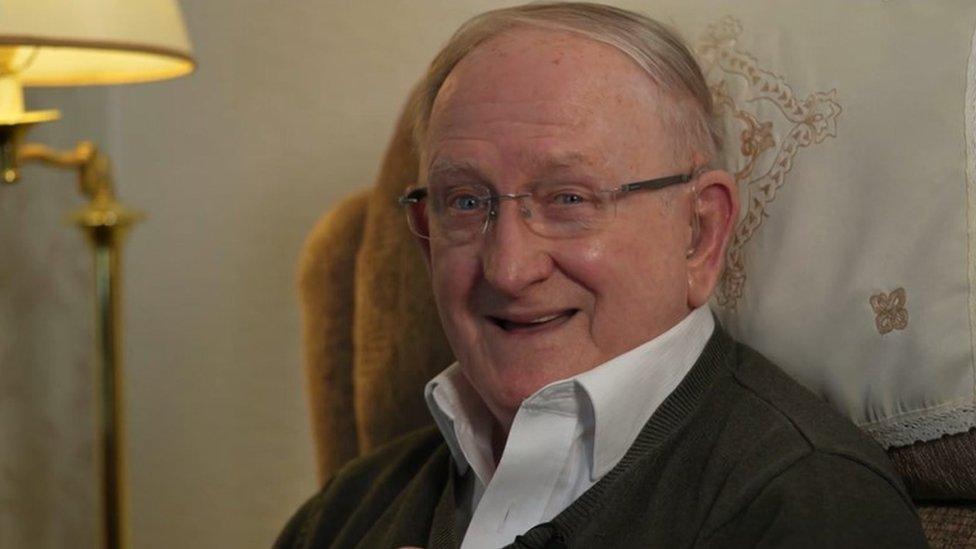
Brian Hough says collecting photos of fallen comrades helps people remember what their ancestors did
Every Sunday morning, Brian Hough, 89, sits in front of his computer in Manchester and writes to the editors of local newspapers across the UK.
Typing with two fingers - but with remarkable speed - he has been doing this for the past 15 years.
In the emails, Brian is sending a letter asking people to send him photos and stories of his fallen comrades during the Korean War between 1950 and 1953.
He was called up for national service when he was 18 and served in the Korean War as a recruit in the King's Regiment.
Brian says that there is nothing glorifying about war, but that the sacrifices of ordinary young people should be remembered.
"I have a list of all the newspapers printed throughout the United Kingdom. I do a geographical area each week," he says.
"As an example, this week, it might be the Yorkshire area, and I'll send out letters to all the newspapers I'm aware of. The following week, it could be Kent or Wales."
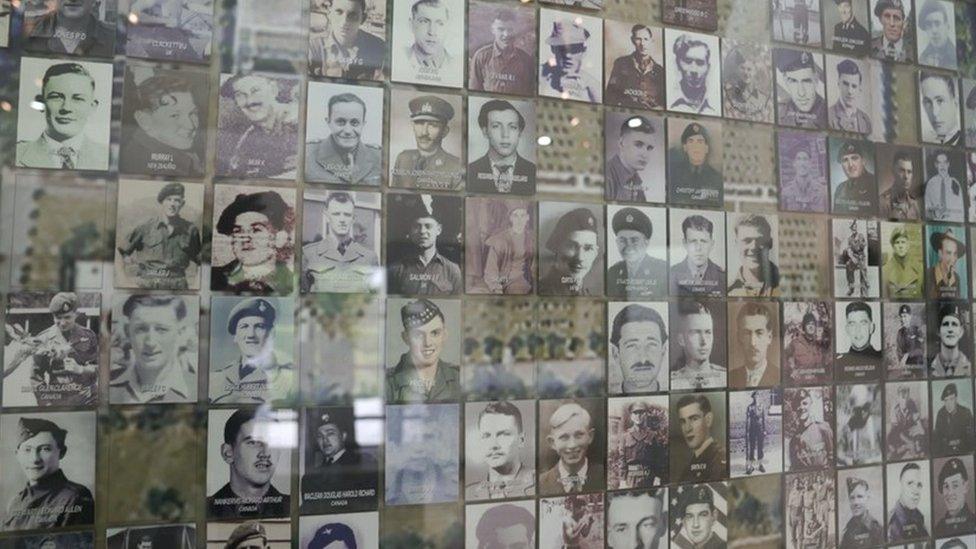
An exhibition of the photos at the cemetery pays tribute to the 2,300 UN fallen servicemen
It takes about six months for Brian to send out his plea across England, Scotland, Wales and Northern Ireland.
And when the cycle ends, he starts all over again.
The UK sent around 56,000 troops to Korea, making it the second largest army after the United States, 1,177 died during the war and 889 are laid to rest in Busan, South Korea.
A total of 2,300 UN fallen are buried in the world's only United Nations Memorial Cemetery in Korea.
"The way the Korean people take care of that cemetery is… Well, I can't say enough about that. It's truly beautiful," Brian says.
"The lads, most of them that died, they went into the army with their pals, and they are lying with their pals."
Of the soldiers who were deployed in Korea, about 70 percent were national service men, who were only 18 or 19 when they died.
After their parents died, many of them were forgotten forever. Their names and date of death were the only clues that they too had once lived.
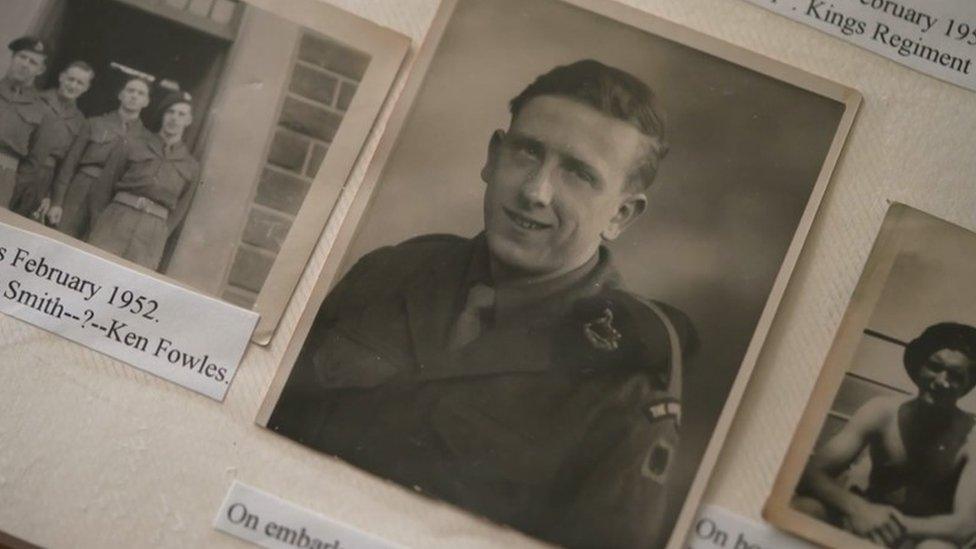
Brian served in the Korean War from August 1952 to October 1953
About 15 years ago, the Office of the United Nations Memorial Cemetery in Korea (UNMCK) asked British veterans for help in finding ways to breathe life back into these fallen soldiers.
Jim Grundy, who died in August, started the project, but Brian soon took over as Jim's health deteriorated.

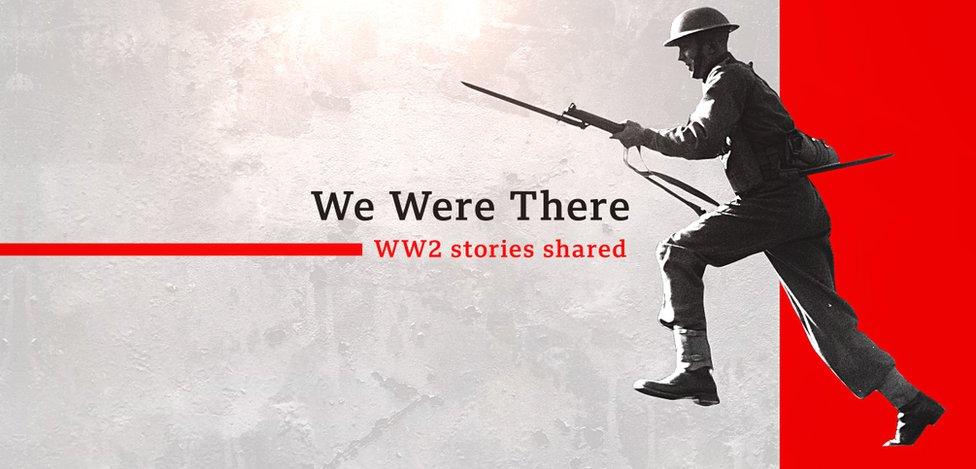
Ahead of the 80th anniversary of the end of World War Two, in 2025, the BBC is trying to gather as many first-hand accounts from surviving veterans as possible, to preserve them for future generations.
Working with a number of partners, including the Normandy Memorial Trust and the Royal British Legion, the BBC has already spoken to many men and women who served during the War - you can watch their testimonies here.

To date, Brian has collected about 400 photos.
These photos are then sent to the cemetery where a permanent exhibition is held in memory of these soldiers.
"In the early days, photographs were coming in week by week. Now, I've had six this year, that's all," he says.
"The photographs we receive now are from nieces and nephews and friends, of course.
"But they are still coming, slowly now."
He says a few months ago he received a photo of a man who was exactly his age, adding: "He was born on the same day as myself, 8 September, 1933.
"And that, that hit me a bit."
The Korean War is often called the "forgotten war".
Twenty-two nations fought under the UN flag, just five years after World War Two, when no-one wanted to talk about war anymore.
Many do not even know about the involvement of the British in the Korean War.
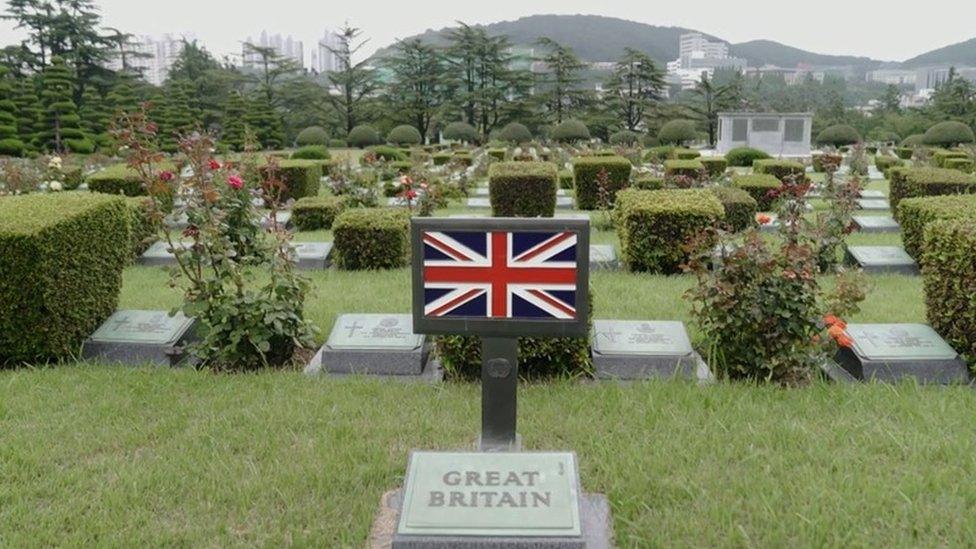
The Commission for the UNMCK, consisting of 11 member nations, now manages the cemetery in Korea
So when Brian returned to the UK with his comrades in 1954, they were given a package of a cheese sandwich, half a crown (the equivalent of £2.50 today), and a train ticket home.
No ceremony, no form of welcome. And they went straight back to live their normal lives.
And that is probably how it has gone for the last 68 years.
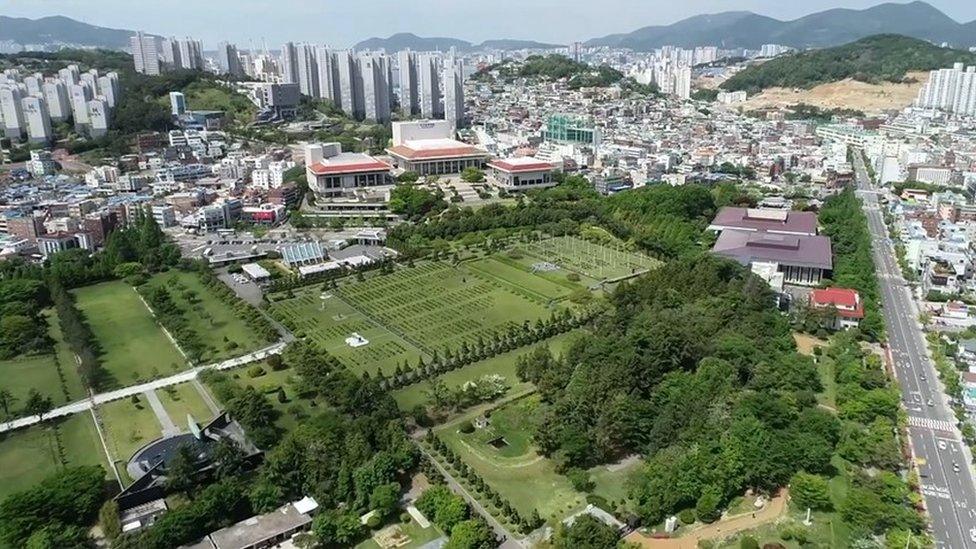
The United Nations Memorial Cemetery in Korea is the only UN-designated cemetery in the world
Brian says there were times when he had not received a letter for months and he thought that maybe now was the time to stop the project, but then he received a letter from a woman with a picture of her brother.
He cannot stop, just yet.
"It's helping people to remember what their ancestors did. Not just for the United Kingdom, but for the world, if you think about it," he says.
"It's history. When you think there were over three million people who died in three years in Korea.
"And people don't know about that… They should do."

Why not follow BBC North West on Facebook, external, Twitter, external and Instagram, external? You can also send story ideas to northwest.newsonline@bbc.co.uk, external